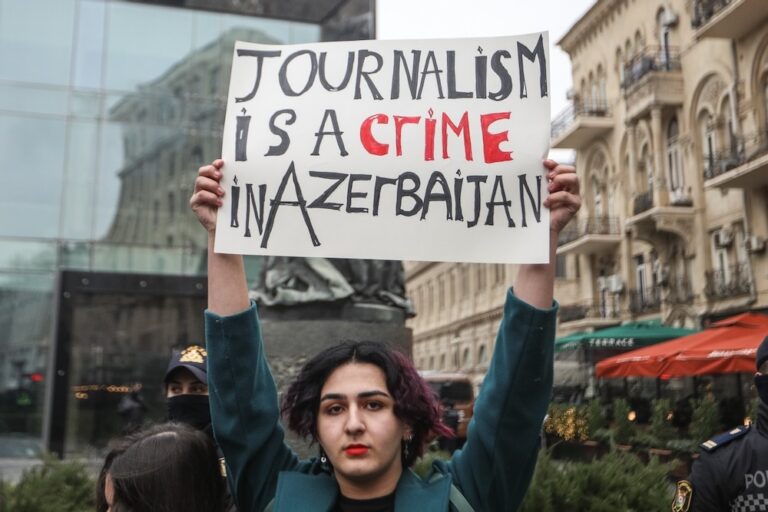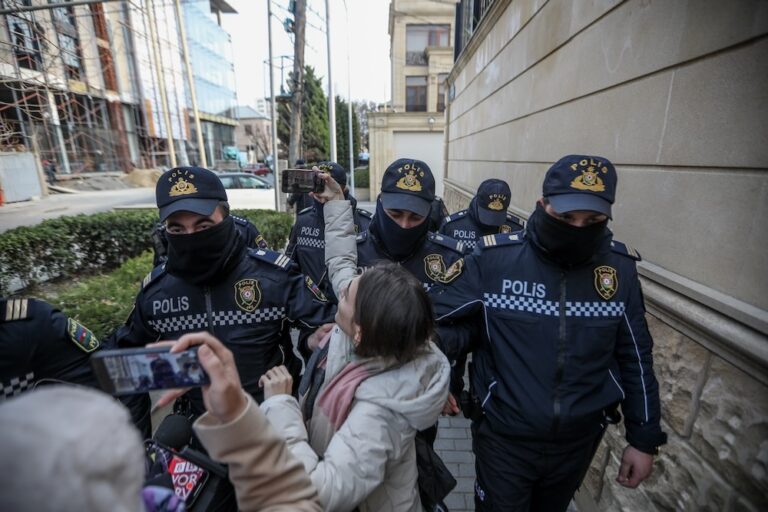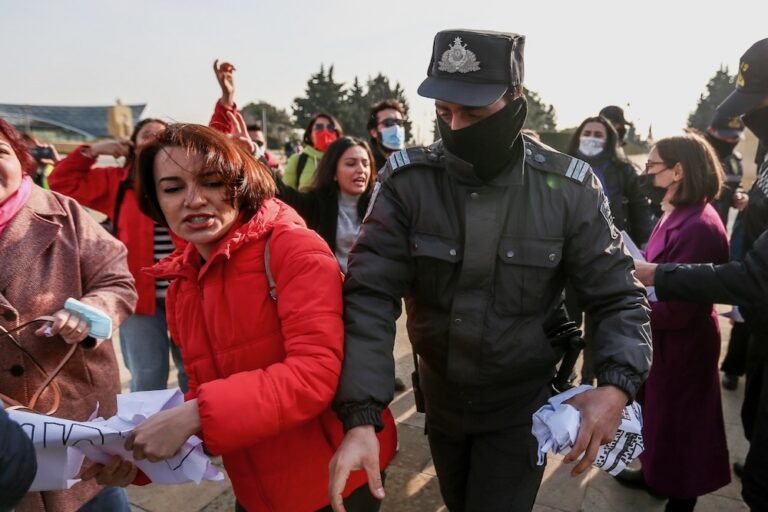IRFS expressed its concern regarding the free expression climate in the country.
(IRFS/IFEX) – On 29 June 2010, IRFS wrote to US Secretary of State Hillary Clinton ahead of her upcoming visit to Azerbaijan:
Dear Madam Secretary,
We address this appeal to you in anticipation of your official visit to Azerbaijan at the beginning of July. On 17 May 2010, U.S. President Barack Obama signed the Daniel Pearl Press Freedom Act, which calls for support of freedom of speech worldwide. President Barack Obama said at the signing of the act, “All around the world there are enormously courageous journalists and bloggers who, at great risk to themselves, are trying to shine a light on the critical issues that the people of their country face; who are the frontlines against tyranny and oppression.” Azerbaijan is such a place – a place where journalists, bloggers and mass media entities face many dangers and are subjected to tyranny and oppression in their everyday operations. This country is a place that needs U.S. support for freedom of speech.
In March 2005 Monitor Journal Editor-in-Chief Elmar Huseynov was shot to death. To this day his murder remains unsolved. In lieu of solving the murder, Azerbaijani authorities continue to artificially prolong the investigation. Additionally, the government does not allow journalists to review investigative material on the case, complicating the conduct of an alternative investigation. In democratic countries, charity foundations are established in honor of journalists when they die tragically; and monuments, streets, and parks are named after them. However, in Azerbaijan, authorities have denied even a few square meters to erect a monument for Elmar Huseynov, despite numerous appeals of civil society representatives.
Elmar Huseynov’s colleague and friend Realny Azerbayjan and Gundalik Azerbaycan newspaper’s Editor-in-Chief Eynulla Fatullayev was arrested in 2007 on trumped-up charges of defamation, terrorism and tax evasion. At the time he was conducting his own investigation into Huseynov’s murder. Several times this year Eynulla Fatullayev has stated publicly in court that the results of his investigation showed that Akif Chovdarov, a high-ranking official of the Ministry of National Security, was involved in the murder of Elmar Huseynov. The Ministry of National Security is investigating Elmar Huseynov’s murder, so we find it highly unlikely that Fatullayev’s statements will ever be considered. On the contrary, the Ministry of National Security has tried to stop these statements from Fatullayev from being distributed in the media and summoned for interrogation the leaders of mass media who were brave enough to publish this statement of Fatullayev. Among them is the head of RFE/RL’s Azerbaijani Bureau.
Despite the recent decision of the European Court of Human Rights on Fatullayev’s case to immediately release him, Fatullayev remains imprisoned today. It is widely believed that this is because Azerbaijan’s government anticipated the European Court of Human Rights decision ordering Fatullayev’s release, and therefore organized a provocation in prison. Specifically, drugs were planted in Fatullayev’s jail cell in December 2009 in order to convict him under new charges. As a result of these new trumped-up charges, Fatullayev may receive a new three-year prison term. A court verdict is expected on the drug charges trial against Fatullayev in the near future.
In addition to Fatullayev, two youth bloggers – Emin Abdullayev (Milli) and Adnan Hadjizade – are wrongfully imprisoned in Azerbaijan. These two men, well known bloggers, were physically attacked while at a café. They were arrested while their attackers, i.e. agent provocateurs, remain free. The real reason for Hajizade and Abudullayev’s arrest is most likely a satirical video clip of a donkey mocking the Azeri government. The clip was created by Hajizade and Abdullayev and placed on YouTube, where it has become widely popular.
Eynulla Fatullayev, Emin Abdullayev, and Adnan Hajizade have all been recognized as prisoners of conscience by Amnesty International and other international and local human rights organizations. Despite numerous calls for their release, the government keeps them in prison.
(. . .)


